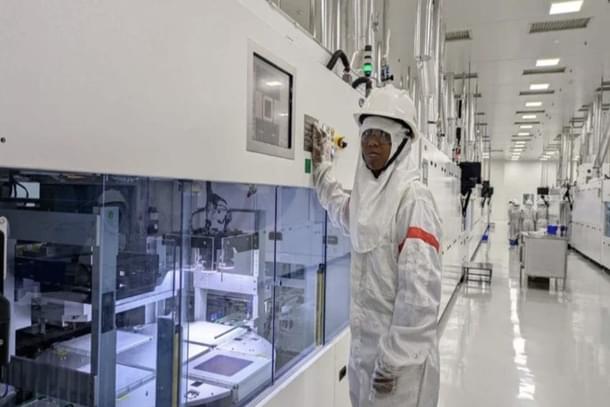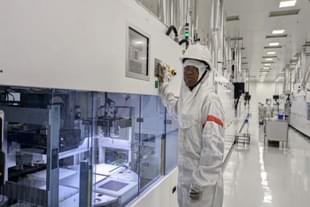News Brief
Tata Power Unveils India’s Largest Single-Location Solar Manufacturing Facility In Tamil Nadu
Swarajya Staff
Feb 14, 2025, 12:39 PM | Updated 12:39 PM IST
Save & read from anywhere!
Bookmark stories for easy access on any device or the Swarajya app.


TP Solar Ltd, the solar manufacturing arm of Tata Power, recently inaugurated its state-of-the-art 4.3 GW solar cell and module manufacturing facility in Tirunelveli, Tamil Nadu.
The facility was officially opened by the Chief Minister of Tamil Nadu, M.K. Stalin, marking a significant milestone in Tata Power’s renewable energy journey.
The new 4.3 GW solar cell and module manufacturing plant is India’s largest single-location solar manufacturing facility. Equipped with cutting-edge TOPCon (Tunnel Oxide Passivated Contact) and Mono Perc technologies, the plant ensures the production of high-efficiency solar cells and modules.
Designed to meet India’s growing renewable energy demand, it will produce high-efficiency solar cells and modules, contributing significantly to the country’s clean energy transition. A solar module is a device in which several solar cells are connected to generate more power than a single solar cell.
Tata Power has invested nearly Rs 4,300 crore in this ambitious project, reinforcing its commitment to spearhead India’s renewable energy transition, especially in the solar rooftop and utility-scale sectors, where it currently holds a 20 per cent market share and seeks further growth under initiatives like the PM Surya Ghar Yojana.
The modules produced at the Tirunelveli facility are already listed in the government’s Approved List of Models and Manufacturers (ALMM), and Tata Power anticipates that its high-quality solar cells will also be included in the upcoming ALMM list.
Beyond Tirunelveli, Tata Power operates another world-class manufacturing facility in Bengaluru, Karnataka, established in 1992. This facility has a production capacity of 682 MW for solar modules and 530 MW for solar cells, further strengthening the company's manufacturing footprint.
Looking ahead, Tata Power plans to utilize 50 per cent of the modules produced internally while supplying the remaining half to third parties between FY26 and FY30.





